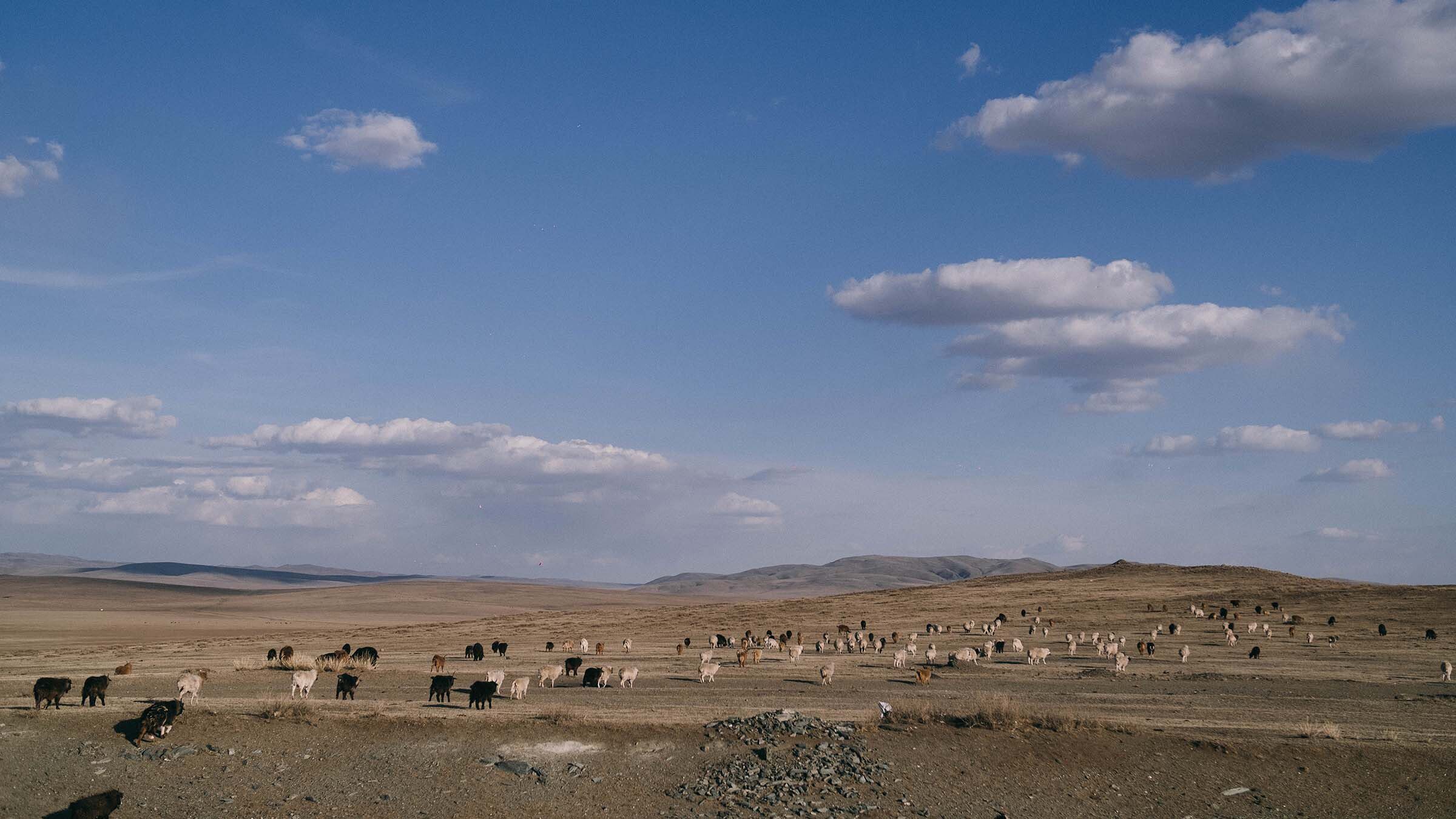


LONELY PLANET
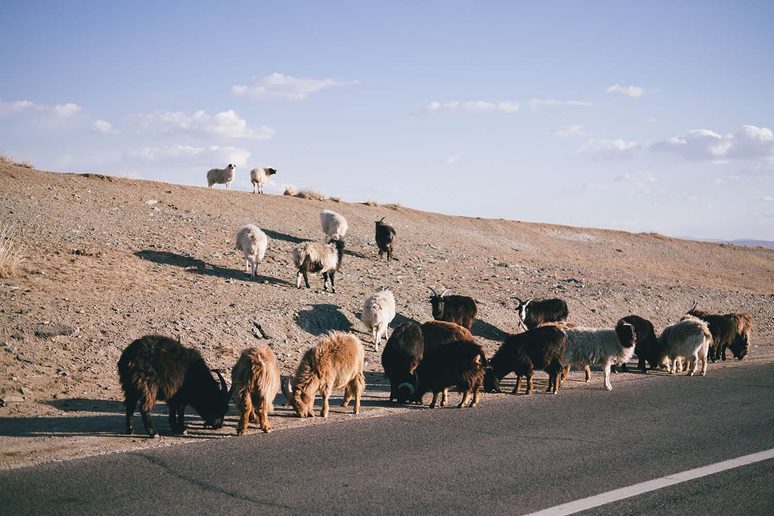
As part of the Sustainable Fibre Alliance (SFA), we work closely with Mongolian Cashmere goat-herders to address these environmental issues in the spirit of their own culture and traditions.

With a focus on restoring grasslands, ensuring animals' well-being, and securing herders' livelihoods, the SFA funds specific programmes in Mongolia to train communities and promote sustainability.
THE RAPIDLY RISING TEMPERATURES COMBINED WITH GROWING ANIMAL NUMBERS IS PUTTING INCREASING STRAIN ON THE GRASSLAND.
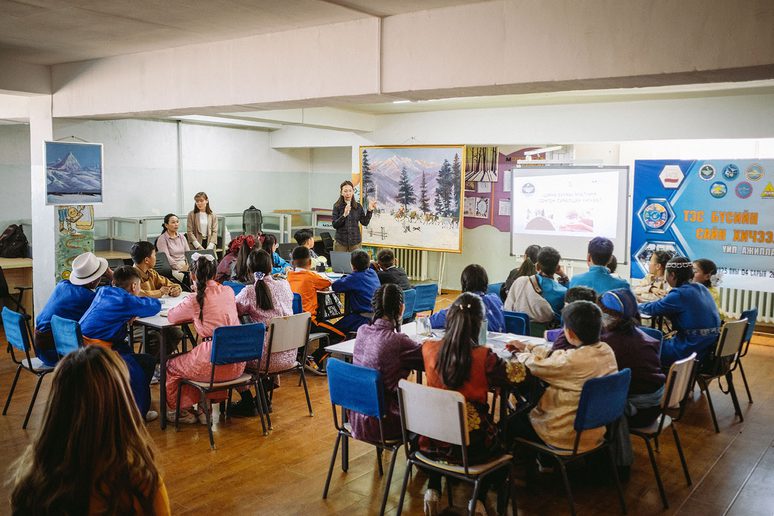
We established the first course in Sustainable Pasture Management, managed for us by the SFA, in 2019. Called “Haraacai” (the Mongolian word for swallow), this course teaches sustainable herding methods to nomadic herders' children. It combines modern sustainability theories with the traditional skills passed down through generations embedded within their centuries-old nomadic culture.
Specially developed textbooks combine contemporary regenerative theories with the traditional methods of Mongolian nomadic culture. The course supports the herders’ view of themselves as custodians of their environment, and a total of 432 students graduated in the first year.
'YOUNG SWALLOWS' - The Expansion of our Training Programme for Young Mongolian Herders
GEOGRAPHY TEACHER SARANZUL WAS RAISED BY A HERDING FAMILY IN THE KHENTII PROVINCE. SHE RETURNED TO KHENTII AFTER STUDYING AT UNIVERSITY AND IS NOW ALSO A HERDER.‘
In Mongolia, traditional nomadic herding practices raise combined flocks of sheep and goats alongside yak, camels and horses. Children in Mongolia attend residential boarding schools due to the distance required to travel from home to school. The Covid-19 pandemic prevented face to face lessons from continuing, so last year, the young herders' education programme moved to an online format. In-person learning will resume later this year, and, in time, we plan to extend our training initiatives, helping to build a future for the next generation of herders.
The Johnstons of Elgin Sustainability Awards are designed to recognise, reward and encourage best practices. They offer financial incentives to herders and communities and receive tremendous attention in Mongolia. Since their inception in 2018, the Sustainability Awards have increased focus on environmental issues and reassured herders that global consumers stand beside them in their sustainability efforts.
This year’s Sustainability Awards recognised livestock farmers and cooperatives leading the way in environmentally friendly and sustainable animal husbandry and land management. The five categories were:
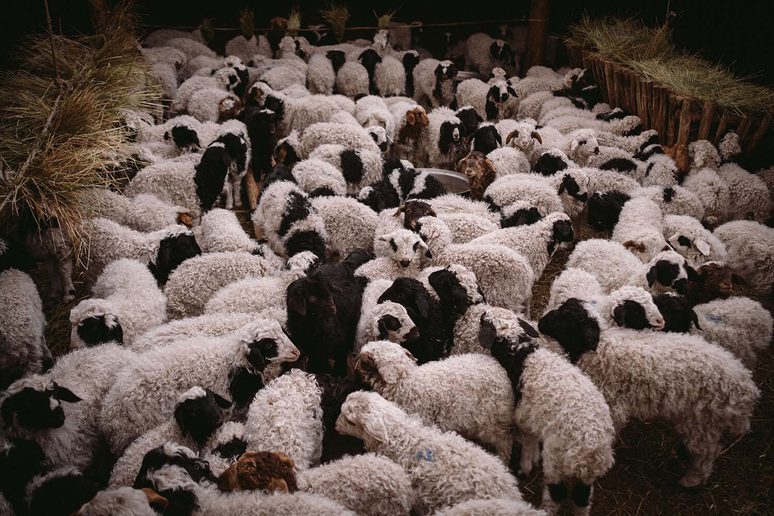
We uphold some of the textile industry's highest quality standards for our Cashmere, and traceability can be incredibly challenging. The SFA is developing a chain of custody model for tracing fibre from SFA-certified sources along the supply chain, which now traces certified Cashmere all the way to the final product.
We support SFA certification, achieving our goal of buying 50% of our Cashmere from certified sources in 2022. We are on track to increase this to 75% in 2023 and reach 100% by 2024.
Our work in cashmere sustainability through the SFA and our own programmes remains a strong, ongoing commitment. If collectively we can protect the grasslands of Mongolia, this will defend a landmass approximately five times as large as the United Kingdom along with diverse and unique plants, animals and a community with a way of life that has been perfected over hundreds of years.
We pledge that by 2024, as larger quantities become available, all of our cashmere will be purchased from SFA sources.
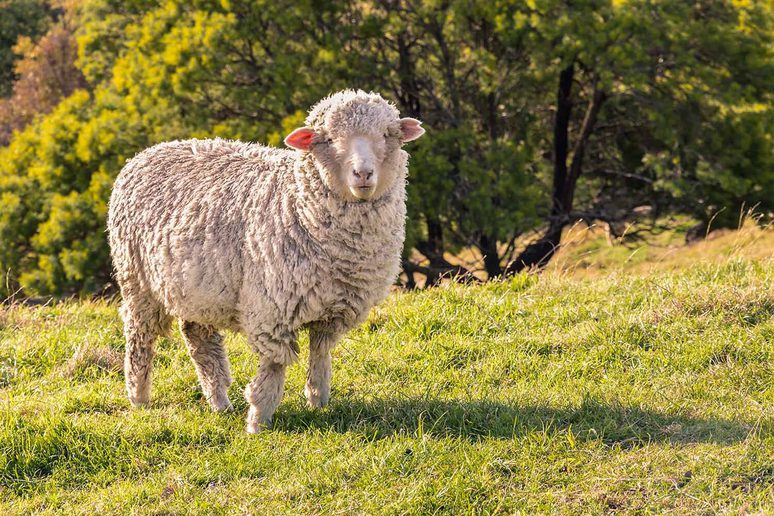
We share a long history with the softest, highest quality Australian Merino Wool. The first merino sheep were introduced to Australia in 1797, the same year Johnstons of Elgin was established. We continue to support the Australian merino-growing industry, helping to maintain the economy in an area where the land is best suited to this use.
OUR SUPPORT OF RWS ALLOWS US TO GO FURTHER – RIGHT BACK TO THE BEGINNING OF THE SUPPLY CHAIN – TO PROVIDE TRANSPARENCY AND HELP TO NURTURE THE EARTH.
Newsletter
Sign up below for 10% off your first online order, updates about Johnstons of Elgin products, services, stores, events and more.
Customer Service
Visit Us